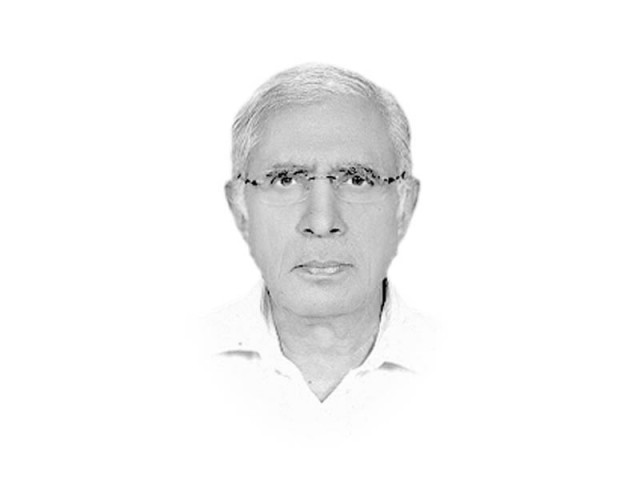Intriguing
Let us not grudge Nawaz a deal even if resumption of Kerry-Lugar package is price for safe passage of US hardware.

The writer is Executive Editor of The Express Tribune
However, for all the wrong reasons, the package was all but consigned to the limbo by the US within a year and by January 2011, the two non-Nato allies were hurtling towards a final split. The Raymond Davis case was too humiliating for our ghairat brigade and even more humiliating was the infamous Osama event and then the bloody Salala incident happened, prompting an enraged Pakistan to close the Nato supply route. But this desperate move also ended up in another humiliating setback as we agreed to resume the supplies in July 2012 on the very terms that had applied to the arrangement before the closure of the route. A furious US, annoyed at such a long hold-up of its consignments to and from Afghanistan, refused to reciprocate by unfreezing the KLB aid package.
The backlash to the KLB Act was fuelled by a widely held perception that President Zardari had bowed too easily to foreign demands. And now that the package has been restored without any publicly announced rehashing of the act to suit the sentiments of our ghairat brigade, one cannot but assume that pragmatism, rather than misplaced passion, has at last prevailed and the conditions listed in the KLB Act are no longer considered intrusive enough in Islamabad and Rawalpindi to say, no thank you, but thank you. With a well-equipped Afghan Army crouching across the Durand Line, Indian troops continuously harassing us across the Line of Control, the TTP blowing up defenceless targets almost on a daily basis, Baloch insurgency on the rise, Karachi in turmoil, the rupee on a slippery slope and no end in sight to prolonged power outages, things are likely to turn much uglier before the Afghan end-game begins. So, let us not grudge Nawaz Sharif a deal even if the resumption of the aid package is a price for safe passage of US hardware worth $80 billion from Afghanistan back home. Perhaps, in the trade-off, we have also agreed to an Indian role in Afghanistan’s stabilisation process post-2014. A far-fetched idea, but I would not be surprised if the businessman-turned-politician returns home with a done deal on drones as well.
Published in The Express Tribune, October 23rd, 2013.
Like Opinion & Editorial on Facebook, follow @ETOpEd on Twitter to receive all updates on all our daily pieces.














COMMENTS
Comments are moderated and generally will be posted if they are on-topic and not abusive.
For more information, please see our Comments FAQ